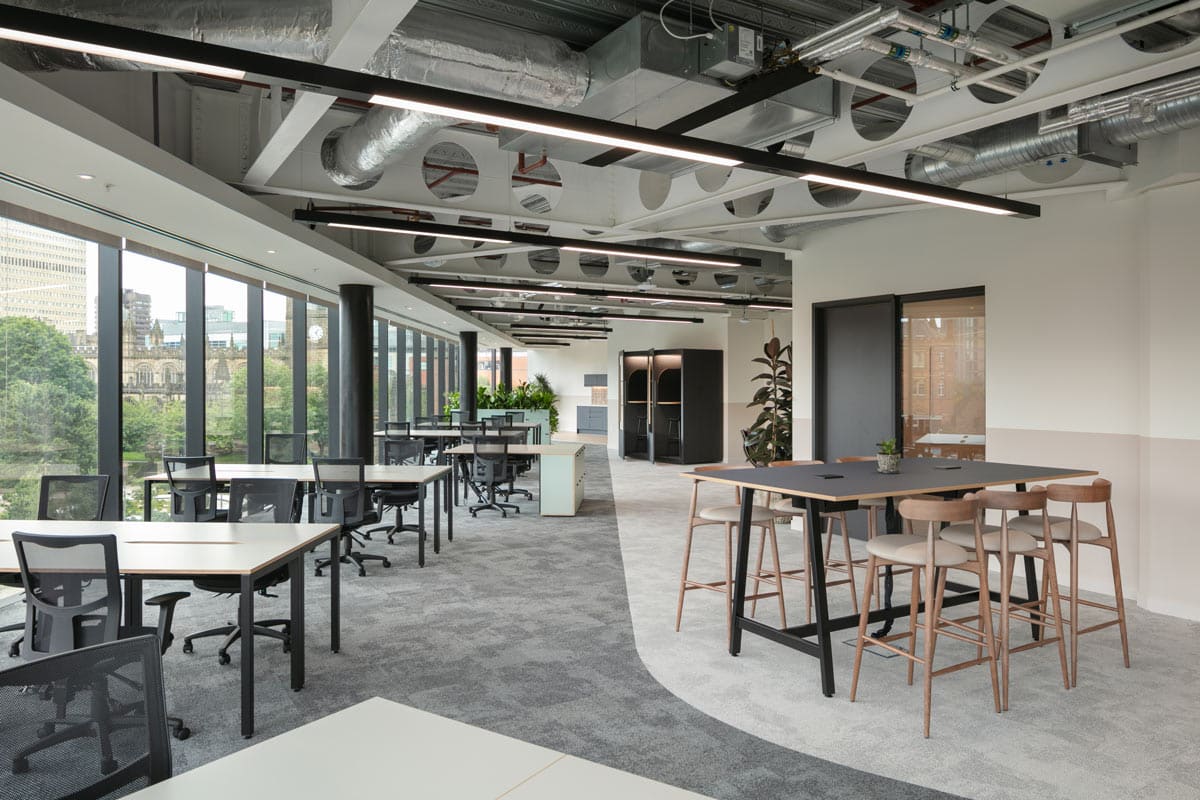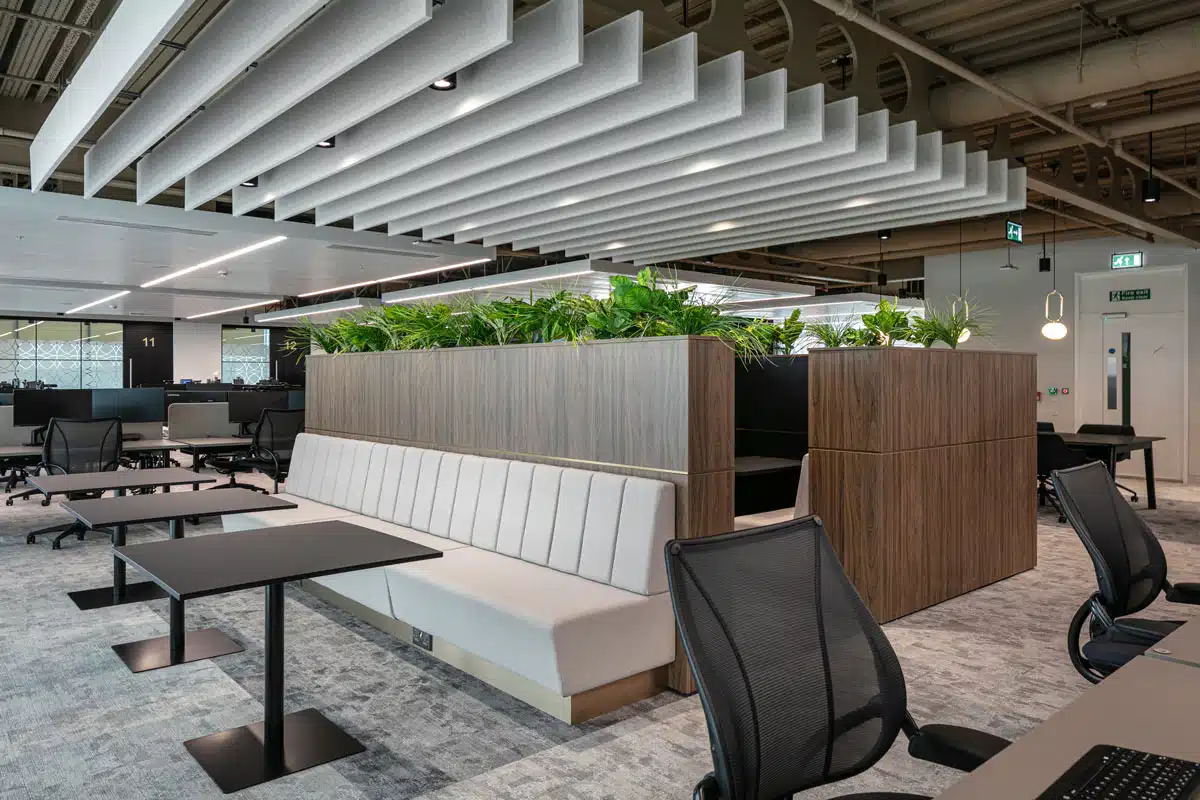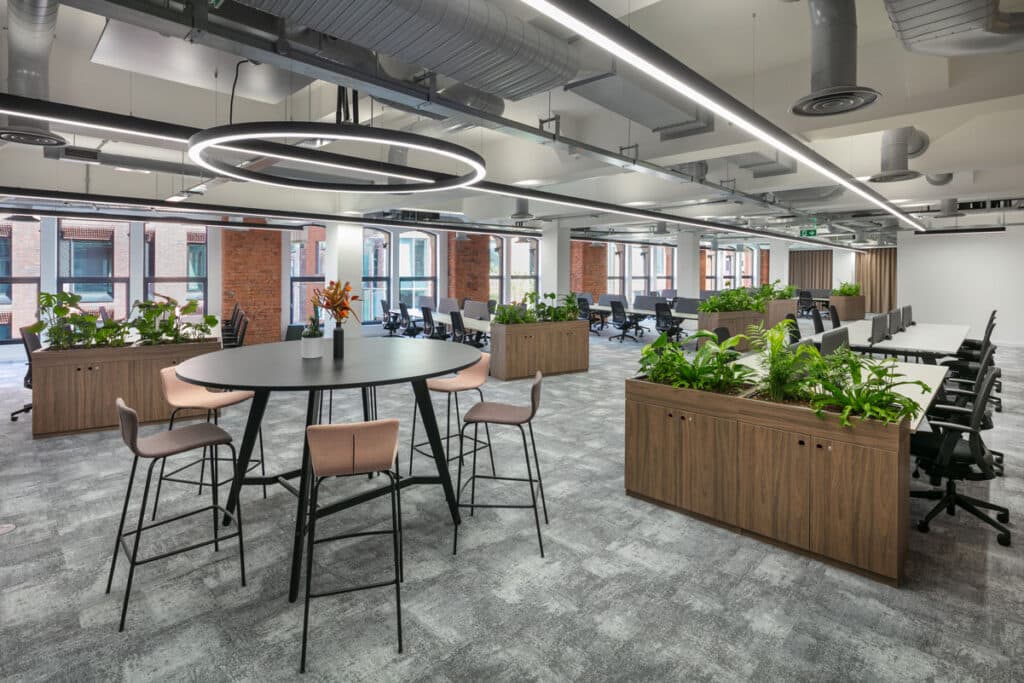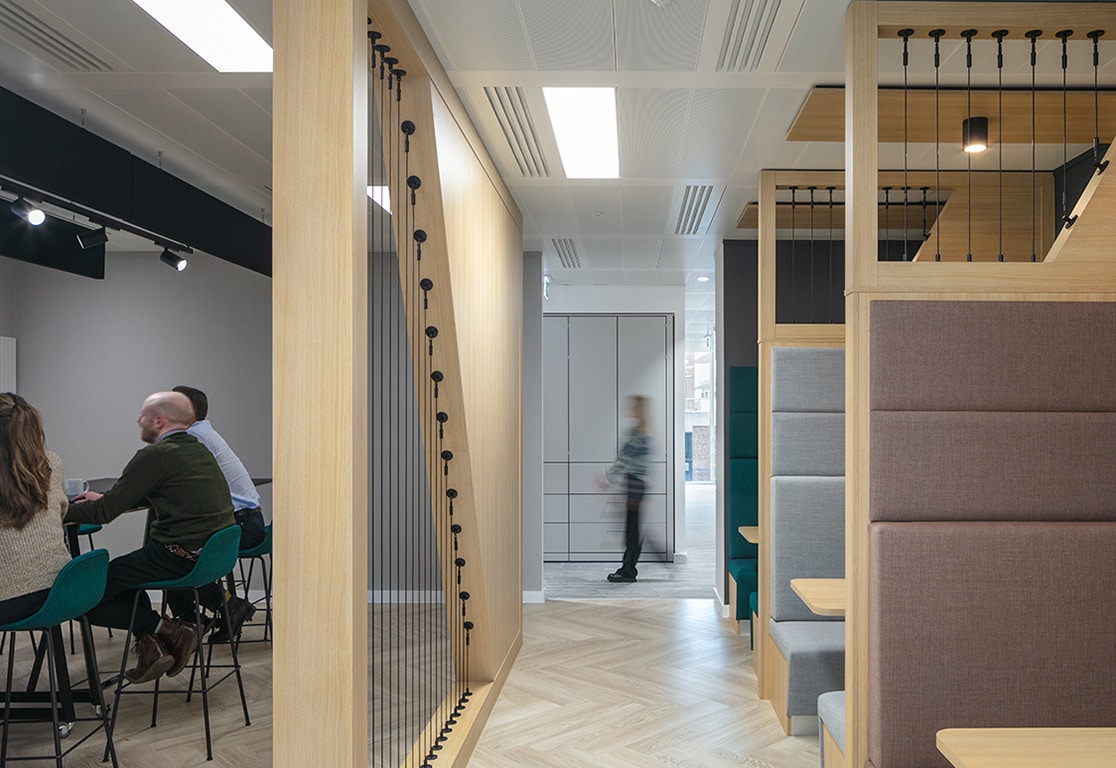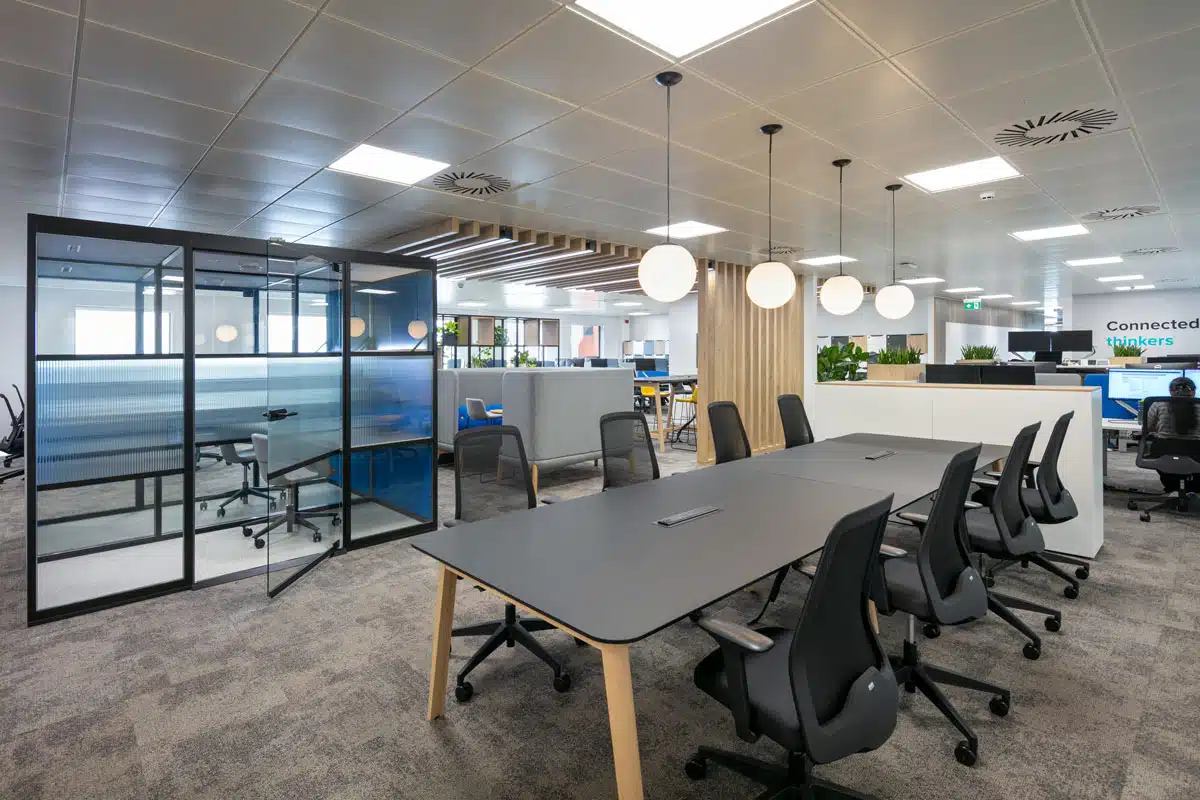Natural Light: A Powerful Mood Booster
Lighting has a direct impact on mood, energy levels, and overall health. Poor artificial lighting can strain the eyes and disrupt circadian rhythms, leading to sleep issues and increased fatigue. On the other hand, natural light supports better sleep, boosts alertness, and improves mood.
When planning your office fit-out, consider maximising daylight exposure through large windows, glass partitions, and reflective surfaces. Supplement with adjustable task lighting to create a more comfortable and flexible working environment throughout the day.
Zoning for Focus and Flexibility
Overly open-plan spaces with no quiet zones can increase noise, distractions, and ultimately, stress. A well-zoned layout provides areas for different work styles – from focus pods and quiet zones to informal breakout spaces and meeting areas.
This variety supports neurodiversity and empowers employees to choose the best space for their tasks. Zoning also reduces the cognitive load caused by constant interruptions, allowing people to recharge and reset between tasks.
Acoustic Control to Reduce Stress
Noise is a leading source of workplace irritation. Background conversations, phone calls, and general office hum can disrupt concentration and elevate stress levels. Smart acoustic design helps to counteract this.
Incorporate sound-absorbing materials such as acoustic panels, carpets, ceiling baffles, and soft furnishings. Acoustic office pods or phone booths offer refuge for deep work or private conversations, helping create a calmer environment overall.
Ergonomic Furniture for Comfort and Posture
Long hours spent in poorly designed chairs or at rigid desks contribute not only to physical discomfort but also mental fatigue. Ergonomic furniture is essential in minimising strain and supporting both focus and wellbeing.
Sit-stand desks, chairs with lumbar support, and flexible breakout seating encourage movement and better posture. Providing these options shows employees their health is valued – a key factor in reducing long-term burnout.
Biophilic Design: Bringing Nature Indoors
Introducing elements of nature into the workspace – known as biophilic design – can significantly reduce stress levels. Studies show that the presence of plants and natural materials can lower blood pressure and boost mood.
Green walls, potted plants, natural wood textures, and views of nature where possible all create a more calming and supportive work environment. These additions help employees feel grounded and more connected throughout the day.
Design That Prioritises Wellbeing
Beyond the physical layout, successful office design reflects a company’s culture and values. Incorporating wellbeing-focused design signals a commitment to employee health and helps foster a positive, engaged workforce.
Consider relaxation spaces, wellness rooms, or even quiet nooks for mindfulness and recharge breaks. Giving people autonomy and comfort in their workspace makes them feel supported, which in turn boosts morale and reduces turnover.
Redesigning with Burnout in Mind
Reducing burnout isn’t just about perks and policies – it starts with the physical workspace. By rethinking lighting, layout, acoustics, and furnishings, businesses can build environments that support focus, reduce stress, and promote better mental health.
At ADT Workplace, we work with organisations to deliver bespoke office fit-outs that put people first. Whether you’re refreshing your current space or planning a relocation, our team is here to help create an office that supports wellbeing and performance.


